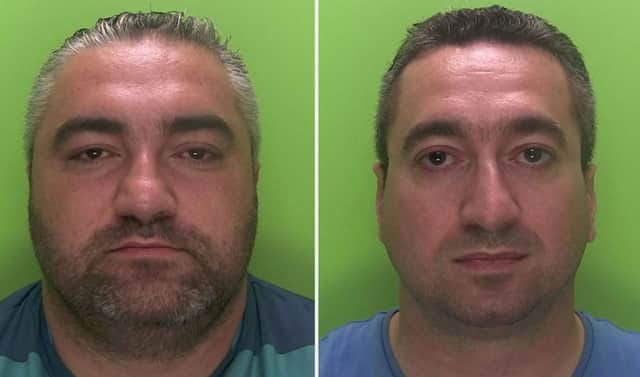Brothers jailed for trafficking people from Poland to work at Sports Direct slapped with order


It is the first time Nottinghamshire Police has applied for a Slavery and Trafficking Prevention Order, under the Modern Slavery Act.
It was granted at Nottingham Crown Court on Wednesday (March 8) against Erwin and Krystian Markowski, who were jailed in January after admitting facilitating the transport of a person to the UK for exploitation and fraud by false representation.
Advertisement
Hide AdAdvertisement
Hide AdThe order, which lasts for 10 years, includes a ban on contacting their previous victims, being involved in multi-occupancy accommodation and arranging to transport people into or within the UK, other than their immediate families.
They must also keep the Chief Constable informed of their addresses, mobile phone details and bank account details.
They are also banned from carrying more than £500 in cash and their telephone numbers must not be associated with any registered accounts at an employment agency as the main contact.
If they were to breach the order, they could be given a further prison term of up to five years.
Advertisement
Hide AdAdvertisement
Hide AdDuring the January hearing, the court heard Erwin Markowski, 38, of Cedar Road, Forest Fields, Nottingham and Krystian Markowski, 35, of Harcourt Road, Forest Fields, Nottingham, trafficked people from Poland to the UK and forced them to work. They controlled and exploited the workers by threatening them with violence and pocketing most of their wages.
Detective Constable Sarah Fearn, Modern Slavery and Human Trafficking Team, Nottinghamshire Police, said the order gave an extra level of assurance that the brothers would not be able to go back to their previous criminal behaviour.
“The Slavery and Trafficking Prevention Order is a great tool in the fight against modern slavery. It allows the courts to place a wide range of restrictions on individuals depending on the nature of the case,” she said.
“This flexibility allows us and the courts to respond and take action in relation to the changing world of modern slavery, and to tailor restrictions to the specific risk posed by offenders - ultimately, safeguarding vulnerable victims and acting as a deterrent to those who pose a risk of committing slavery or trafficking offences.”